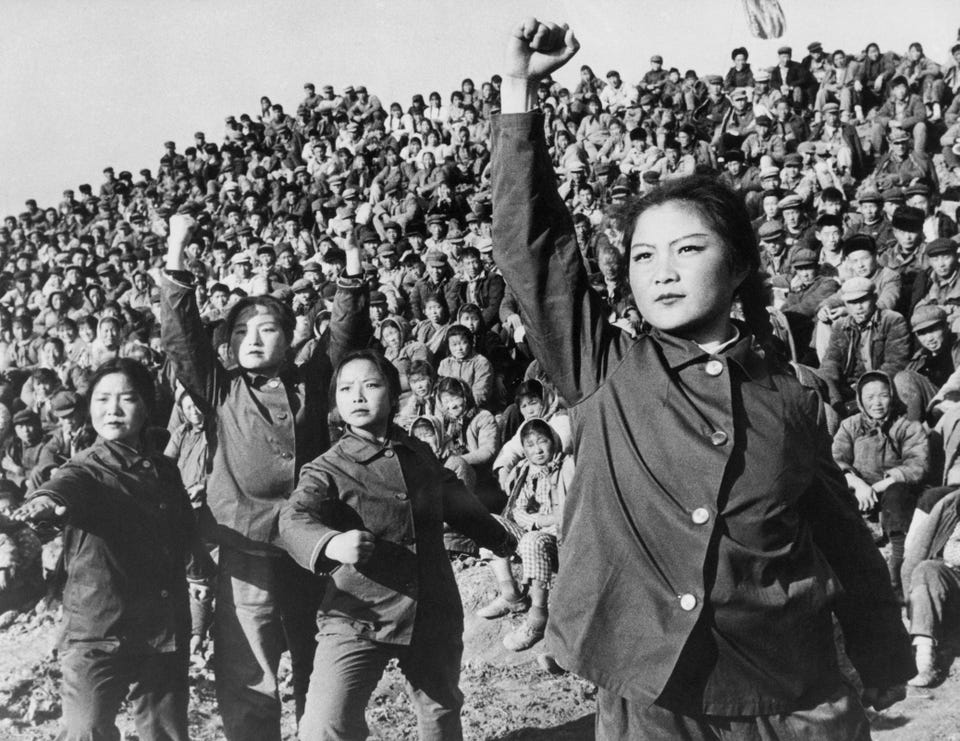Science What Happened To The Grandchildren Of Those Persecuted During The Cultural Revolution? Jonathan Wai Contributor Opinions expressed by Forbes Contributors are their own. I write about psychology and education research and policy. Following New! Follow this author to stay notified about their latest stories.
Got it! Sep 6, 2022, 04:13pm EDT | New! Click on the conversation bubble to join the conversation Got it! Share to Facebook Share to Twitter Share to Linkedin Each of my parents have—independently—given me a globe as a graduation present. These globes are both made of glass and are small, the kind that sit on your desk. I suppose as Chinese immigrants to the U.
S. as graduate students so many years ago, they wanted to ensure that I always remembered there was a world outside of the small town where I was born and raised. Now, one of my sons who is fascinated by the world has a huge globe in the form of map that takes up one of his walls.
It feels like a full circle. My father doesn’t talk much about his childhood, other than it was a difficult one as he grew up in Hong Kong (when it was under British rule) and saw some of his siblings pass away due to poverty and other circumstances. He was the oldest of three children that remained.
He did take me back across the border of Hong Kong to China to the hometown of my great grandparents when I was in college, and perhaps one day I can take my kids as well. The story of my mother’s side of the family I managed to capture in greater detail through converging conversations with my grandparents before they passed away, along with my mother’s version of it. She was born in a small town around Shanghai and told me how her father had done well for himself at the Shanghai power company and so she grew up in relative wealth.
But then, everything changed during the cultural revolution when her dad was branded a capitalist and sent to jail for a number of years. My mom told me stories of having a little red book. She also recalls no longer having many things after her dad went to jail and living in a tiny apartment.
After my grandpa was released from jail, the story goes he took a job in Hong Kong with just a little money in his pocket, and slowly rebuilt a business this time doing waterproofing, reconstructing a new career around age 50. For example, his company helped waterproof part of the Hong Kong tunnel. Before this, my mother’s family had already hidden money and valuables in legs of tables and other things, and mom recalls nervously walking across the bridge to Hong Kong, wearing some of the remaining valuables, a pearl necklace, and hoping that nobody would notice that the family was not really “visiting” their father on vacation, but crossing over to Hong Kong never to return.
Now a new NBER working paper by Alberto Alesina, Marlon Seror, David Yang, Yang You, and Weihong Zeng titled “ Persistence Despite Revolutions ” investigates what happens when something like the cultural revolution in China takes place. My parents have always stressed the importance of education, working hard, and remembering how lucky I am to have been born in the U. S.
where there is freedom and opportunity. And they often told the story of my grandfather to help illustrate that. From the abstract of the new paper: “Can efforts to eradicate inequality in wealth and education eliminate intergenerational persistence of socioeconomic status? The Chinese Communist Revolution and Cultural Revolution aimed to do exactly that.
Using newly digitized archival records and contemporary census and household survey data, we show that the revolutions were effective in homogenizing the population economically in the short run. However, the pattern of inequality that characterized the pre-revolution generation re-emerges today. Almost half a century after the revolutions, individuals whose grandparents belonged to the pre-revolution elite earn 16 percent more income and have completed more than 11 percent additional years of schooling than those from non-elite households.
We find evidence that human capital (such as knowledge, skills, and values) has been transmitted within the families, and the social capital embodied in kinship networks has survived the revolutions. These channels allow the pre-revolution elite to rebound after the revolutions, and their socioeconomic status persists despite one of the most aggressive attempts to eliminate differences in the population. ” MORE FOR YOU New Research Finds A Connection Between Domestic Violence And These Two Personality Disorders This Scientist Helps Andean Forests And Ecuador’s Women In STEM Exceptional Fossil Preservation Suggests That Discovering Dinosaur DNA May Not Be Impossible Follow me on Twitter .
Check out my website . Jonathan Wai Editorial Standards Print Reprints & Permissions.
From: forbes
URL: https://www.forbes.com/sites/jonathanwai/2022/09/06/what-happened-to-the-grandchildren-of-those-persecuted-during-the-cultural-revolution/



